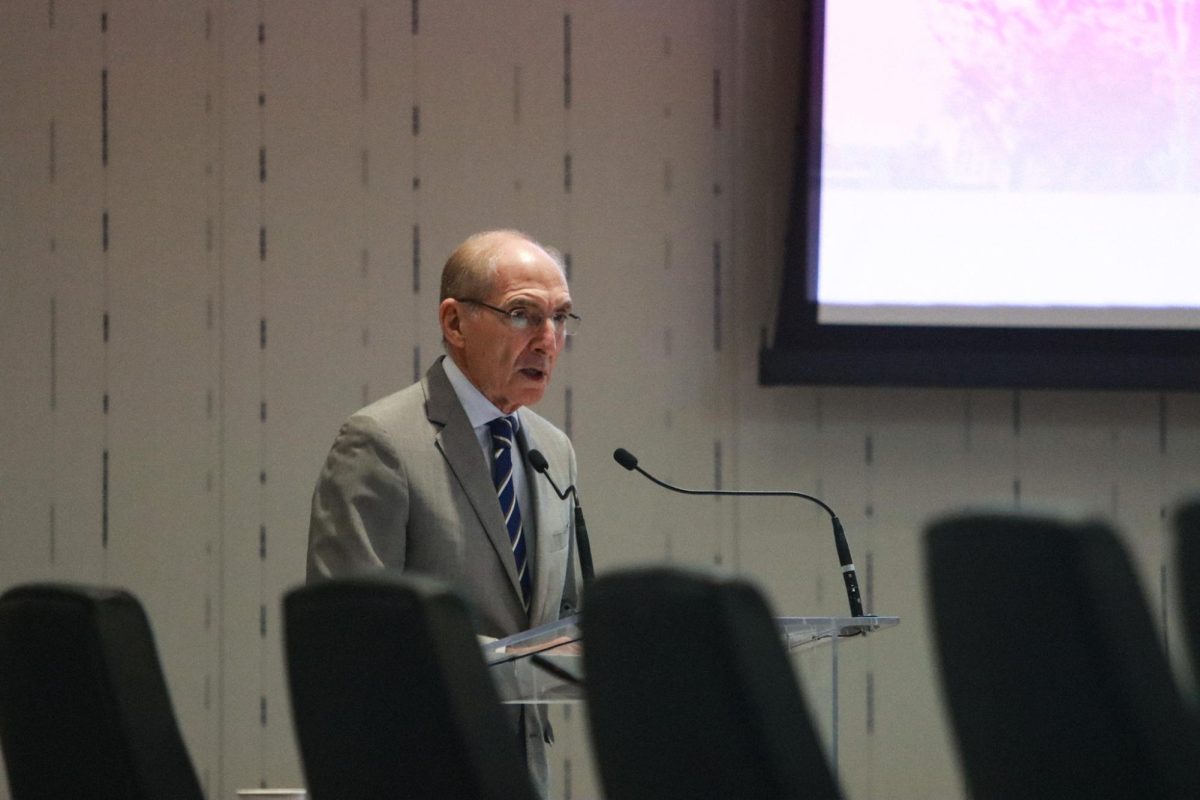UK alums give millions for students with financial need
December 11, 2018
A substantial donation funding the single largest scholarship gift in UK’s history was announced at the UK Board of Trustees’ final meeting of the calendar year.
Donor Mira Ball was greeted by a standing ovation at the Tuesday meeting when her $10 million gift to the university’s scholarship fund was unveiled.
The $2 million gift and $8 million pledge, part of the Don and Mira Ball Endowed Scholarship Program, will work to fund scholarships for UK students in conjunction with the UK LEADS initiative.
LEADS is a new university initiative aimed at addressing the unmet financial needs of students, as part of UK’s $2.1 billion “Kentucky Can” fundraising campaign.
Mira Ball and her late husband Don both graduated from UK before starting their successful company Ball Homes, according to a release announcing the donation. Mira Ball was also the first woman to chair the UK Board of Trustees. She said it was this long-standing connection with UK that prompted her family to make this substantial gift.
“This is going to be something that is going to last, and we need to give things that are lasting and that will mean something in the future,” Mira Ball said. “Education is a big thing we need and the thing that will get us into the centuries to come and keep us sustainable.
The Balls’ donation will preference students from their native Nelson and Henderson Counties. This gift brings their total philanthropic contributions to the university to approximately $13 million.
President Eli Capilouto and the members of the Board of Trustees welcomed this gift with open arms.
“The incredible generosity of Mira and Don Ball is being felt right here and right now at our university, but its impact will extend across time and across time and across generations in our Commonwealth,” said Capilouto. “The ripple effect of this gift will be to build stronger families, stronger communities and a healthier, more vibrant state.”
UK Housing, Dining rates to go up in 2019-2020
The university Board of Trustees announced a general increase in the cost of housing and dining prices for fall 2019 and spring 2020, while housing prices for summer 2019 will decrease significantly.
The cost to live in one of UK’s newer dorms, which make up most of UK’s on-campus beds, will increase by 3 percent. The most common room type, the two-bedroom suite, accounts for over half of UK’s current on-campus housing and for the 2018-19 school year it cost $4,416 per semester. In fall 2019 and spring 2020, the room will cost $4,458 per semester.
The cost to live in an older dorm— Baldwin, Ingels, Smith or Wildcat Coal Lodge— will increase by 1.35 percent. Summer housing will decrease by 11.5 to 13.2 percent.
Greek housing prices will see the biggest increase. The cost to live in a double room in a Greek house will increase by 14.6 percent. In 2018-19, a double room cost $2,706, and next school year, the price will be $3,100.
Dining rates for 2019-20, will increase by about 3 percent. The minimum plan— 10 meals and $100 flex dollars— cost $1,525 this year and will increase by $50.
Campus modernization efforts in full swing
According to a press release, over the past seven years UK has spent over $2.3 billion on adding new residence halls, classrooms, athletics facilities and a whole host of other buildings. The university plans on spending another $500 million in the next five years.
That $500 million will be spent on a plethora of academic facilities. The engineering college will expand its space to host over 2,000 more students by 2025. The money will also be spent on continued renovations of the Chemistry-Physics building and soon renovations will begin on White Hall classroom building.
The money will also go to the College of Communications and Information’s new north campus building near the Marksbury building, the College of Public Health’s move to a renovated Scovell Hall and the College of Design’s move to a “reimagined” Reynolds Building complex.
The university expects to use a combination of state-appopriated funds, general revenue and philanthropy to pay for the continued campus improvements.





























































































































































